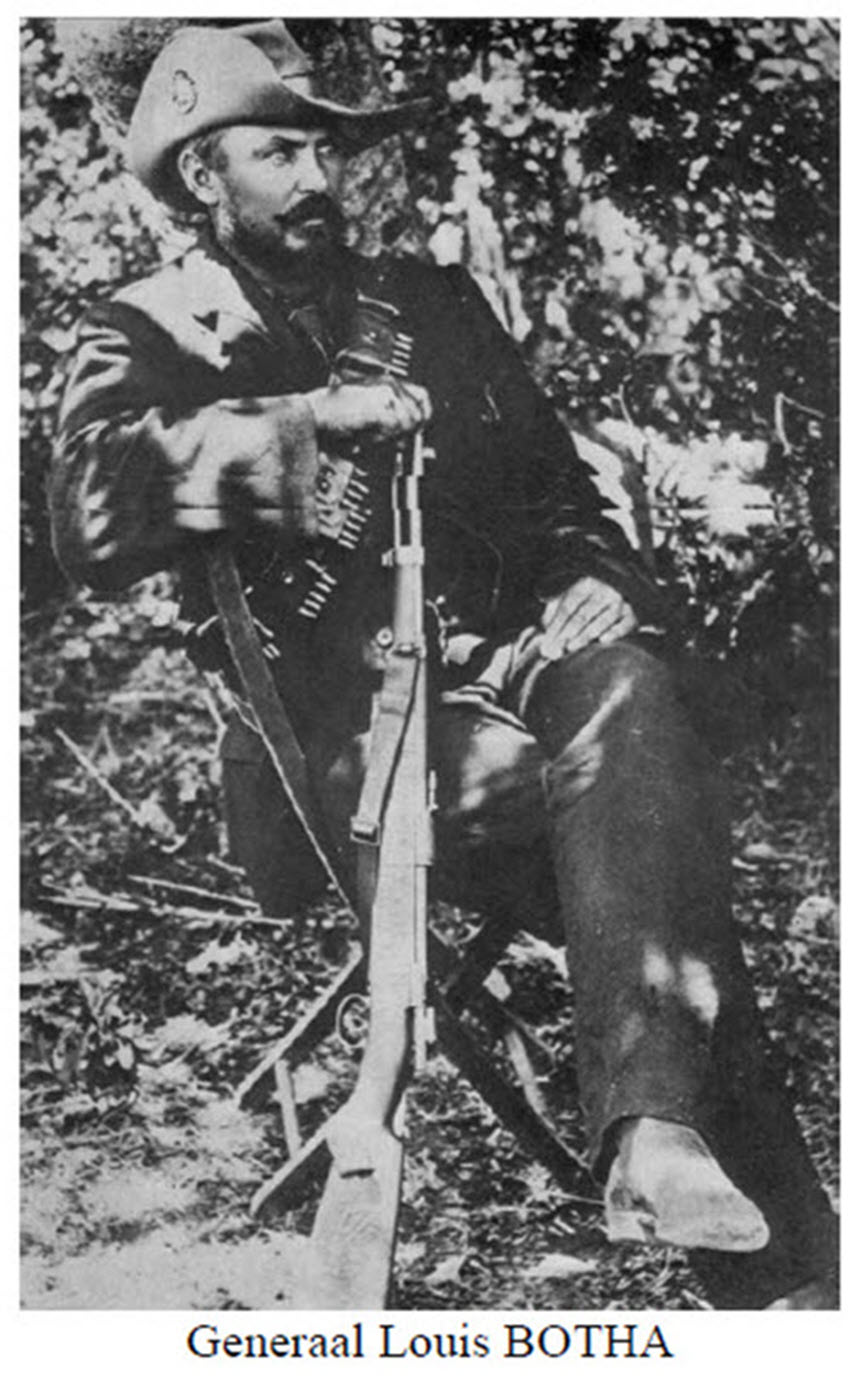
Louis Botha (27 September 1862 - 27 August 1919) was a Boer General , supreme commander, and war hero, chiefly responsible for the Boer's stubborn and effective guerrilla resistance against the combined forces of the British Empire. After the war, he improbably became the Prime Minister of the Union of South Africa (which incorporated the previously independent Boer territories into a British dominion). Upon the breakout of the First World War, he sent South African (and Boer troops fighting on the side of Britain) into German Namibia, which proved unpopular with the Boers and led to the brief Boer Rebellion.
Botha was born in Natal, but eventually relocated to the Orange Free State. As a young man, in 1884, Botha gained battle experience leading the "Dinuzulu's Volunteers", a group of Boers that had supported the African Chief Dinuzulu against Zibhebhu in a civil war. He was thereafter elected a member of Parliament for the Transvaal.
Upon the breakout of the Second Boer War, Louis Botha commanded various Boer forces in the Transvaal and scored impressive victories against numerically superior British forces at the Battles of Colenso and Spion Kop. Upon the death of Piet Joubert, Botha was made the supreme commander of the Boer forces in the Transvaal.
The tide of war turned against the Boers, but the fighting continued after the fall of Pretoria in 1900. For the next three years, Louis Botha waged an effective guerilla war against the British, tying down thousands of imperial troops. Resistance was eventually crushed when the British resorted to a scorched earth policy, burning farmsteads and confining the Boer population to concentration camps.
After the war, Botha worked towards reconciliation with the British and eventually became a supporter of the Boers becoming part of a united South Africa as a dominion within the British Empire. He was elected the first Prime Minister of the Union of South Africa. He was now, ironically, in charge of British forces in South Africa and in that capacity he sent South African troops into German West Africa. This move sparked a Boer rebellion since the Boers considered the Germans their natural allies. The man who had fought so fiercely for Boer independence now found himself using troops to put down a Boer rebellion, which can be considered the last dying ember of the Boer War.
Louis Botha died shortly after the war, of complications from the Influenza epidemic which had swept the world.